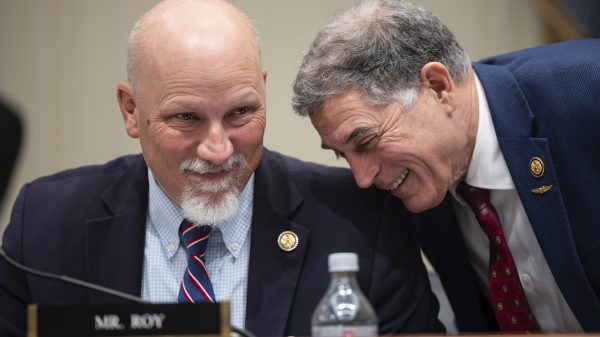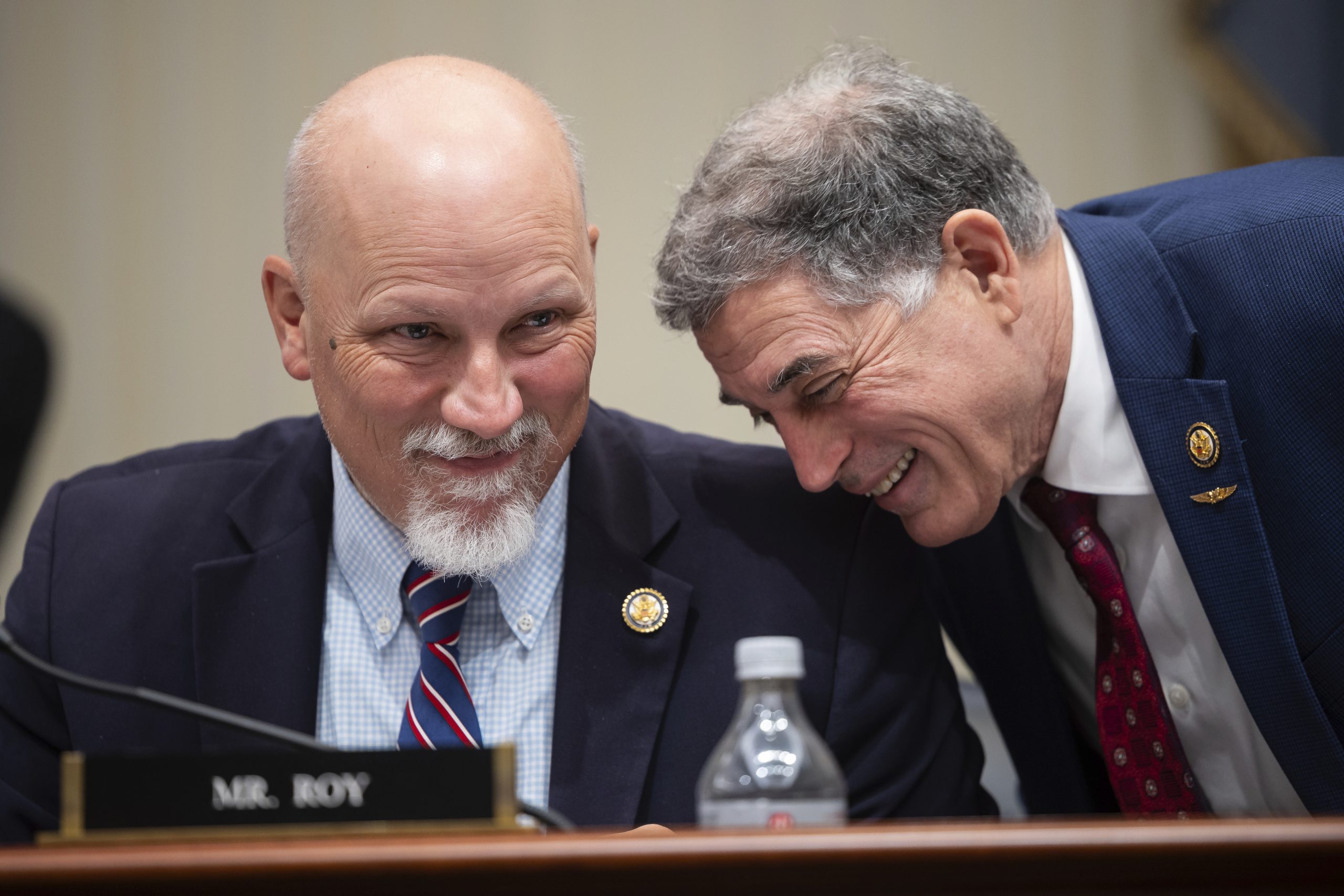House Republicans made substantial changes to the Medicaid portion of the GOP megabill in amendments unveiled Wednesday night, including accelerating work requirements and paying states not to expand the program under the Affordable Care Act.
The proposal will move up the start date of Medicaid work requirements from Jan. 1, 2029, to Dec. 31, 2026, in a concession to conservative hard-liners who have been pushing for deeper cuts to the program.
The work requirements included in the previous bill would yield nearly $280 billion in savings, according to congressional scorekeepers — the most of any policy under the House Energy and Commerce Committee’s jurisdiction. The new accelerated timeline could lead to additional savings of tens of billions of dollars but also result in even more people losing coverage. GOP moderates have not raised significant concerns about implementing them more quickly.
The new bill does not include controversial changes hard-liners had pushed for that would alter the federal share of spending in the joint federal-state Medicaid program. Moderates had balked, arguing they would cut too deep into benefits, and House Speaker Mike Johnson had ruled out those changes.
But in other sops for conservatives, the revisions would expand the criteria for states that could lose a portion of their federal payments if they offer coverage to undocumented people. It also moves to bar coverage of gender-affirming care for adults under the program, not just minors as previously proposed.
The Congressional Budget Office estimated that a previous iteration of the bill could lead to 7.6 million people who had Medicaid going uninsured, and millions more from the the Affordable Care Act marketplace also losing coverage. Those coverage losses are expected to be higher with this new version. The Energy and Commerce portion of the bill has been estimated to save nearly a trillion dollars over a decade.
The new amendments would make another notable change to Medicaid -— one that hard-liners hope would incentivize states to not to expand their programs under the ACA after the legislation goes into effect. The wonky measures would give states a financial incentive not to expand coverage to people with higher incomes than traditional enrollees, though still near the poverty line. The policy would make higher payments to providers like hospitals for uncompensated care.
Hard-liners, particularly Rep. Chip Roy of Texas, pushed for the provision to be in the bill during a White House meeting with President Donald Trump Wednesday afternoon, according to three people with direct knowledge of the meeting. One senior GOP aide described the provision as “a small Medicaid tweak” that would give the hard-liners a reason to support the bill, along with several other minor changes.
Notably, they did not secure any further changes to the Medicaid state provider tax, which moderates had held firm against.
Rep. Ralph Norman of South Carolina said in a brief interview Wednesday night he was happy with the meeting and that “there were some good things from the White House.”
Another Republican lawmaker said hard-liners would chiefly tout the accelerated Medicaid work requirements, the expansion change and a newly accelerated phase-out of clean-energy tax credits.
In a major departure, the bill would fund cost-sharing reduction payments to insurers on Obamacare’s insurance exchanges.
The policy would offer subsidies to insurers that would, in turn, help reduce premiums and co-pays for patients. Trump ended this practice in his first administration, saying it constituted a bailout to the insurance industry. But the nonpartisan Congressional Budget Office estimated at that time that ending the payments would cost hundreds of billions of dollars over a decade. Bringing the policy back could provide savings.
Rachael Bade contributed to this report.



















